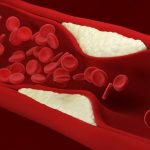Early, tight control of Crohn’s disease may have lasting benefits – Harvard Health Blog
The gastrointestinal (GI) tract is a remarkable organ: it resides on the inside of our bodies, but is regularly in contact with the outside world by virtue of what we ingest. It is quite incredible that the immune cells of the GI tract are not activated more regularly by the many foreign products it encounters every day. Only when…










